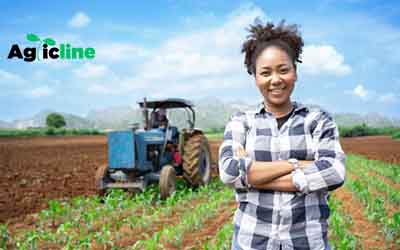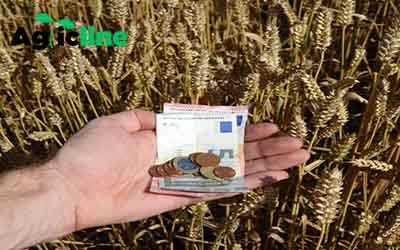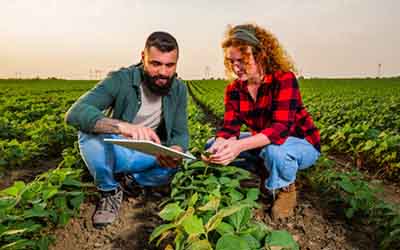Have it ever crossed your mind to learn how to become an agriculturist? worry no more, on Agricline, we bring answers to all your agro related questions.
As one of the world’s oldest occupations, Agriculture requires you to take on one of the most challenging jobs possible and plays a crucial role in the lives of practically everyone on the planet.
The majority of dictionaries define an Agriculturist as someone who works in the agricultural industry, yet this vague description falls short of conveying the complexity of the profession.
How To Become An Agriculturist; An Overview
A person from practically any scientific subject can often become an agriculturist by changing their major to one in agriculture.
Biologists, chemists, and other scientists are used by agriculturists to enhance yields and production methods. A person can become an agriculturist in a variety of agricultural fields, such as farming, forestry, and aquaculture.
An agriculturist rears livestock and cultivates crops to provide food or raw materials to businesses and households. Numerous agriculturalists carry on the family legacy of farming by inheriting their land. First-generation agriculturists are those who own or manage their property but were not raised in an agricultural household.
In this article, we will describe who an Agriculturist is, what agriculturists do, list some steps for how to become an Agriculturist, and so on. Sit back, Read, and enjoy as we explore you on this content.

Who is an Agriculturist?
A professional in the science, practice, and management of agriculture and agribusiness is known as an Agriculturist, also known as an agriculturalist or Agronomist. In the United States and the European Union, it is one of the regulated professions.
Agriculturists’ main responsibility is to oversee agricultural projects and programs, frequently in the planning or study of agribusiness for the benefit of farms, food, and agribusiness-related organizations. Agriculture policymakers or technical advisers for policy formulation are typically recognized as public agriculturists in the government.
Duties of an Agriculturist
The main areas of specialization for agriculturists, who are science-based consultants, include agribusiness management, crop science, agricultural extension, agriculture economics, development communication, animal science, soil science, food technology, crop protection, agricultural biotechnology, agricultural policy, and environmental science.
Agriculturists in the modern world are required to be skilled in digital agriculture, including the use of geographic information systems, artificial intelligence, and remote sensing.
Today’s Agriculturist are concerned with a wide range of issues, including the production of food, the development of healthier food, the distribution of agriculture, the management of the environmental effects of agriculture, the establishment of recreational areas (such as sports fields, golf courses, and parks), and the extraction of energy from plants.
Below are the remaining minor duties performed by an Agriculturist;
- Agriculturist plants, monitor and reap crops.
- irrigation of farmland, and upkeep of ditches, pipes, and pumps are done by the Agriculturist.
- They operate and maintain farm equipment and tools.
- They Use fertilizer or pesticides to eradicate weeds, fungi, and insects.
- They Use tractors or wheelbarrows to move plants, bushes, and trees.
- They Feed animals and clean and sanitize their enclosures, yards, and cages.
- Agriculturists examine animals for signs of sickness or injuries and give animals immunizations to prevent disease.
Educational Requirements to Becoming an Agriculturist
There are no mandated educational requirements for professional farmers. However, acquiring an associate’s or bachelor’s degree in agricultural sciences, farm business, sustainability, or botany may be beneficial if you want to run your farm or manage a farm.
You can better comprehend the complexities of farming and the economic and financial sides of running a farm with a degree in science or business.
It is crucial to spend time learning about the agricultural process, how to utilize the tools, and what to anticipate from this vocation.
You can educate yourself on farming instead of or in addition to a two- or four-year degree program by reading books, going to seminars or certification courses, and doing online research.
The average salary of an Agriculturist
The average hourly pay for agriculturists in the United States is now between $15.14 (25th percentile) to $30.77 (75th percentile), with earnings as high as $61.78 and as low as $8.89.
Furthermore, the wide range in the typical compensation for an agriculturist—up to $15.62—indicates that there may be numerous prospects for wage increases and promotion based on knowledge, location, and expertise level.
The job market for agriculturists is not very active right now because few businesses are hiring, according to recent job posting activity in both Africa and the USA as well as the entire state.
Step-by-step guide: Becoming an Agriculturist in the USA and Africa
Becoming an Agriculturist is not quite as uneasy as you think. Here are the 5 steps to becoming an Agriculturist;
- Examine several career options in agriculture
Investigating the numerous farming occupations that are possible is the first step in becoming an agriculturist.
Some people own and operate industrial farms that supply large quantities of food, food products, raw resources, or livestock to people all over the nation.
Other people manage small farms and concentrate on catering to a certain local community or market segment.
Some people decide to run a farm that thrives on participation from and engagement with the local community. Investigate the number of farms in your neighborhood.
- Apply for a position at the entry-level
The next step to becoming an agriculturist, whether you have restricted your options to one job or several, is to apply for an entry-level position.
Having experience might help you decide if this is the proper career route for you before you make any significant life adjustments or financial investments.
- Examine USDA microloans and loans for beginning farmers
The United States Department of Agriculture reports that there are numerous loan programs and services available for both those who want to start farming as agriculturists and those who already have farms.
To learn more about these loans and microloans, go to the USDA Farm Service Agency website. Applying for a loan or microloan can provide commercial farmers and beginning farmers up to $1,776,000 in funding, and people wishing to launch a specialty farming business up to $100,000 in microloan finance.
- Get set
Create a business strategy and a business model that formally provides for costs, spending, production objectives, and projected earnings if you want to become an agriculturist.
Your plans should specify where you want to begin working as an agriculturist and whether relocating is required.
- Invest in your gear
You will need a certain set of tools, equipment, and machinery to start as an agriculturist. You can now locate and buy the equipment you’ll need to operate your farm based on your research, business plan, and financial projections.
Frequently Asked Questions on How To Become An Agriculturist
See below;
What education is required to become an Agriculturist?
A degree in Agriculture or a related field is common, but hands-on experience, internships, and workshops also contribute to a well-rounded skill set.
What skills are essential for success in this field?
Strong problem-solving, communication, and practical skills, along with adaptability to new farming technologies, are crucial for becoming a successful Agriculturist.
Is a specialization necessary in agriculture?
While not mandatory, specializing in areas like crop science, agribusiness, or sustainable agriculture can enhance your expertise and career prospects.
How important is practical experience in agriculture?
Practical experience through internships, volunteering, or working on farms is invaluable, providing real-world insights and enhancing your ability to apply theoretical knowledge.
Are there opportunities for advanced studies in agriculture?
Yes, pursuing a master’s or doctoral degree can lead to research, teaching, and management positions, enabling deeper exploration of agricultural concepts.



